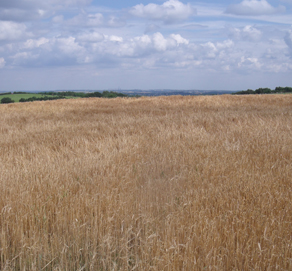Trespassing, theft and safety of employees are just some of the things that can be a worry when you own a farm. Here, First Fence look at the steps you can take to ensure your farm is a safe and efficient place to work.
Physical barrier
You might have installed “No Trespass” signs around your farm, but that doesn’t mean people will always take note. One key way to prevent intruders and help keep your farm secure is to add in a physical barrier, and this can be done in a number of ways.
Planting hedges is one option, but you may decide to add in a physical fence – or even barbed wire – to strongly deter intruders from trespassing on your property. You may also wish to have a guard dog too: not only will they help you to feel safe, their barks will alert you to any possible intruders, and should have trespassers running the opposite way.
Alarms and CCTV
One step further to fences, is to install alarms and CCTV on your farm. You may also want to consider installing lights around the edge of your land, as they can ward would-be trespassers off, or even better identify them caught in the act. If you do decide to install an alarm, there are two types to choose from: a loud alarm, which will give criminals a shock, or a silent alarm. So, whilst the intruder won’t know the alarm is going, it will contact the police automatically; meaning criminals have a higher chance of being caught red-handed. For many farms, livestock can be a prime target for thieves, so ensure you install CCTV around their fields. Should an animal go missing, you’ll need to be able to identify them – so always tag your livestock, and take pictures of them with these tags clearly visible.
Health and safety
Harvest time can be a peak period for farms, and you may decide to employ some casual workers to help you out. However, as you’re probably well aware, farms can be a dangerous place to work – especially if you’re new to the environment, and don’t know what to look out for. That’s why you should always carry out training for your new starters, making sure they know how to operate everything, how to stay safe, and work efficiently. Point out the dangers they should be aware of, and show them how to minimise risks – for example, locking tools away and keeping workshops tidy.
Creating a handbook can be a good idea, as it means workers can take it away and refer to it again if they find they need to.
Insurance
Did you know that it’s a requirement by the government that you have employers’ liability insurance arranged and in place before you employ any workers? Accidents can happen, and whilst having employees who are aware of the risks and how to minimise them can help to prevent them; incidents can still strike unexpectedly. Should an employee become injured or ill as a result of the work carried out for you, then your insurance will help you to cover the compensation costs. If you don’t have insurance? Then you’ll have to pay for any compensation and fees out of your own pocket, which will be very costly – and that can have a hugely negative impact on your farm.
Lock vehicles
No doubt your vehicles are the most expensive thing you own on your farm, and for that reason they too, can be a prime target for thieves. There are ways you can tackle this to help keep them safe: firstly, and most importantly, you should keep vehicles out of sight wherever possible (ideally in a securely locked shed), and always make sure the keys are taken out of the ignition – keep them with you at all times.
Should a vehicle go missing, if you mark your vehicles with your Business Identifier number, or have it fitted with a tracking device, then you stand a better chance of having it found and returned – although of course, there are no guarantees. Keeping vehicles out of sight can not only deter thieves, they remove the risk of injury to those working on the farm too, so it’s something you should definitely get in the habit of doing, if you haven’t already.
Much like every other workplace, steps need to be taken to ensure that your farm is a safe and secure place to work, and this has two aspects: keeping criminals out, and ensuring people who work for you are safe. Follow these tips to make your farm a safe working environment, and one where your employees enjoy coming to work.










